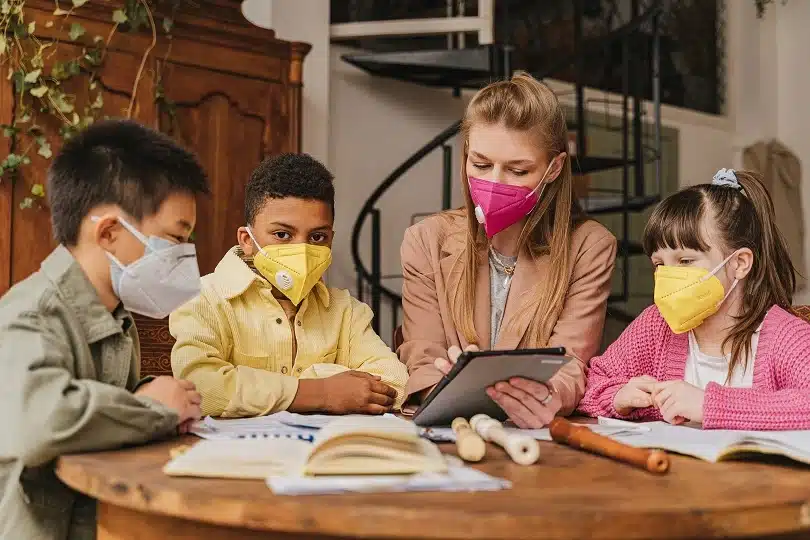As we move with caution and hope, the onus lies on adults – as parents, doctors, teachers, and caregivers – to take care of our young ones. Here are some practical ways to cater to the physical and psychological needs of kids during this crisis.
The COVID-19 pandemic has emerged as a global challenge, turning our lifestyles inside out over the last few months.
As we move with caution and hope, the onus lies on adults –as parents, doctors, teachers, and caregivers – to take care of our young ones.
Here are 10 practical ways to cater to the physical and psychological needs of kids during this crisis:
1. Stick to a routine
For maintaining normalcy and balance, have a schedule for your child. Stick to wake-up time, mealtime, screen time, and bedtime as well. Weekend leeway needs to be decided by both parents and kept consistent.
2. Channelise energy
Help your child plan his/her day to make it a wholesome experience. It’s a good idea to include colouring, craft, instrumental music, storytelling, and household chores in the plan. Encourage individual responsibility – such as watering the plants or making the bed.
3. Restrict screen time
Phones, iPads, laptops, television, and gaming qualify as screen time. The American Academy of Pediatrics recommends no screen time for children younger than two; one hour of supervised screen time for two-five-year olds; and customised screen time for children older than five, as per their education and recreation needs. Excessive screen time is shown to adversely impact children’s memory, cognition, sleep, academics, eating habits, temperament, and social skills. It’s prudent to exercise online safety by installing content control apps or child guidance locks.
4. Adopt a holistic diet
Have a weekly family diet chart pinned up on your kitchen board. Encourage regular consumption of water, lemonade, coconut water, and clear soups for adequate intake of hydration minerals and vitamins. Make natural immunity boosters like Vitamin C (found in citrus fruits), along with vegetables and fruits rich in antioxidants, a part of the daily diet. Eggs, chicken, fish, and pulses are good sources of protein for muscle building, while nuts and seeds provide the essential good fats. Home-cooked foods can offer both variety and nutrition. It’s best to restrict sugary drinks and takeaways (in moderation) for the weekends.
5. Exercise daily
Just like meals and screen time, exercise is a daily necessity for the child. Yoga, skipping the rope, taking the stairs a few times, or even dancing to music are options that you could explore to keep your child physically active. It’s important to ensure that they get adequate exposure to the sun, even if they are indoors for the most part of the day. Daily walks on the terrace or balcony can be a good idea.
6. Talk to your child
Talk about the pandemic; educate them; listen to their anxieties and concerns. Stay updated on their academics, online classes, and friends. Reach out to your pediatrician for help if the child shows changes in temperament.
7. Consult your doctor
Opt for teleconsultation with the doctor in case of health concerns, if any. Take appointment for immunisation, or in cases where a clinical check is warranted.
8. Cultivate new hobbies
Use this time to encourage new interests. Make the most of your time together by taking a combined online music class, or playing a game of chess, or simply cooking a meal together.
9. Maintain personal hygiene
Teach your child the importance of personal hygiene, by way of taking daily showers, clipping their nails, or trimming their hair. It’s essential to maintain sleep hygiene as well – sleep and wake up on time; no screen time before bed; quiet, dark room with ambient temperature, to state some.
10. Lead by example
Last but not the least, do exactly as you would like your child to do. Lead by example. Wash your hands regularly, follow sneezing or coughing etiquette, and maintain a safe distance from elderly and unwell people. Stay connected with friends and family via electronic media; real-time socialising can wait!
(The author is a Consultant Pediatrician with Madhukar Rainbow Children’s Hospital, Delhi)


















Add Comment